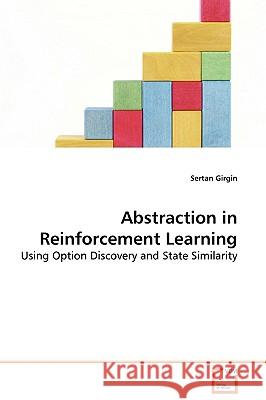Abstraction in Reinforcement Learning » książka
Abstraction in Reinforcement Learning
ISBN-13: 9783639136524 / Angielski / Miękka / 2009 / 104 str.
Reinforcement learning is the problem faced by an agent that must learn behavior through trial-and-error interactions with a dynamic environment. Usually, the problem to be solved contains subtasks that repeat at different regions of the state space. Without any guidance an agent has to learn the solutions of all subtask instances independently, which in turn degrades the performance of the learning process. In this work, we propose two novel approaches for building the connections between different regions of the search space. The first approach efficiently discovers abstractions in the form of conditionally terminating sequences and represents these abstractions compactly as a single tree structure; this structure is then used to determine the actions to be executed by the agent. In the second approach, a similarity function between states is defined based on the number of common action sequences; by using this similarity function, updates on the action-value function of a state are re ected to all similar states that allows experience acquired during learning be applied to a broader context. The effectiveness of both approaches is demonstrated empirically over various domains."











